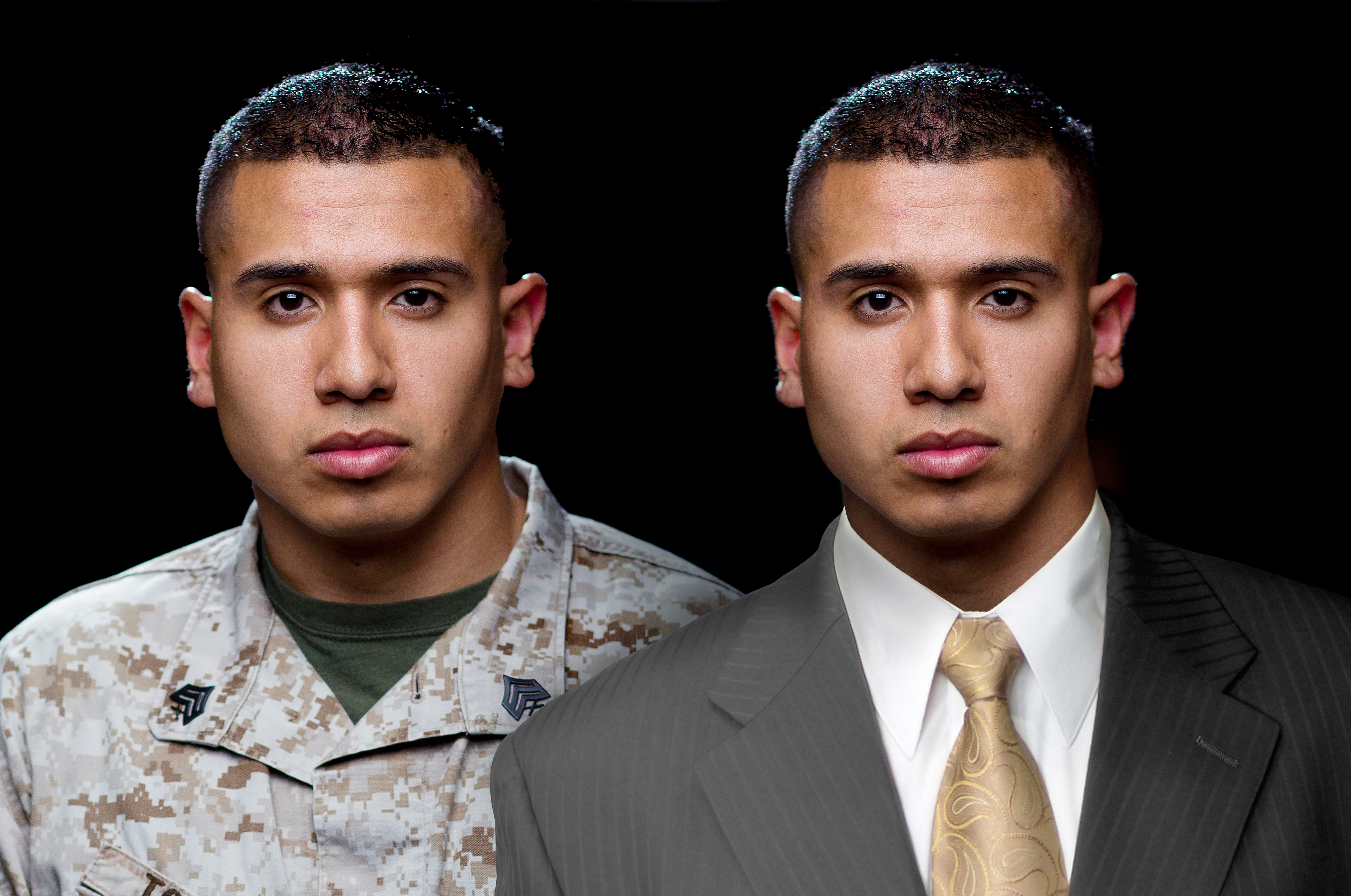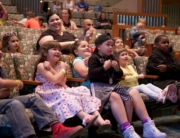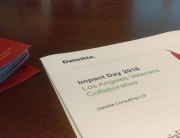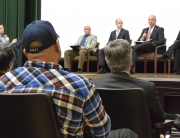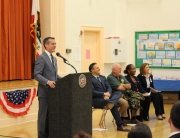USC has partnered with key community organizations to build a better employment system in Los Angeles that supports veterans.
Research from the USC Suzanne Dworak-Peck School of Social Work Center for Innovation and Research on Veterans & Military Families (CIR) shows that more than 80 percent of veterans exit the military and move to Los Angeles without a job. This data has helped guide the work of the Los Angeles Veterans Collaborative (LAVC), which has spent years planning a more efficient way to capitalize on the expertise, resources and networks of organizations working in the employment field.
Thanks to a grant from the Nonprofit Sustainability Initiative, CIR will partner with Salvation Army Haven, People Assisting the Homeless (PATH), Community Career Development, Inc., Jewish Vocational Service’s Veterans First, U.S. VETS, and Goodwill of Southern California to better prepare veterans for the civilian job hunt.
The new partnership will formally establish working relationships between these organizations and streamline services offered to veterans seeking employment. The goals of the initiative are to find where veteran employment service delivery is currently lacking, deliver services more efficiently and build greater awareness among veterans of the services available. The grant provides funds for a consulting firm to oversee the organizations’ strategic restructuring process. The partnership will ensure quality control and establish a baseline of standards for their practices.
“The grant is a key opportunity for the LAVC to expand its impact in the veterans’ employment space,” said Chase Millsap, a former CIR staff member who worked to develop the grant proposal.
“The grant is a necessary tool for change but the effort would never have been possible without building the trusted relationships between our community partners.”
Of the many goals and projects to emerge from the work done at the LAVC, this is the first project to be funded through the NSI in the career advancement group. Prior to this, the organizations in the group said that providing employment resources for veterans had been a strain on the individual resources of many of the nonprofit and government agencies involved.
Many of today’s veterans are not prepared for the fast-paced, competitive job market in Los Angeles. According to LAVC providers working in this field, many veterans are focused on finding a job, not a meaningful long-term career.
The grant will also allow for a consulting firm to develop a new holistic process among the partner organizations over the next six months and oversee its implementation. Strategic restructuring will also create one fluid intake system for collection of information on veterans and employers.
Under the partnership, the organizations will operate under one mission, using a set of established practices. They will be looking for gaps in veterans’ services and seeking out those veterans who have not previously been offered services. It will be possible to reach a greater number of veterans and employers and to produce a higher quality of programs if partners are able to share information and performance metrics.
“The collaboration has led to a deeper conversation about how to build an infrastructure where veterans who come to Los Angeles can get good-paying jobs,” said Nathan Graeser, CIR community program administrator. “The NSI grant will allow our employment partners to build a system that helps them all do their jobs better and, most importantly, can be key for veterans transitioning to a tough labor market.”


